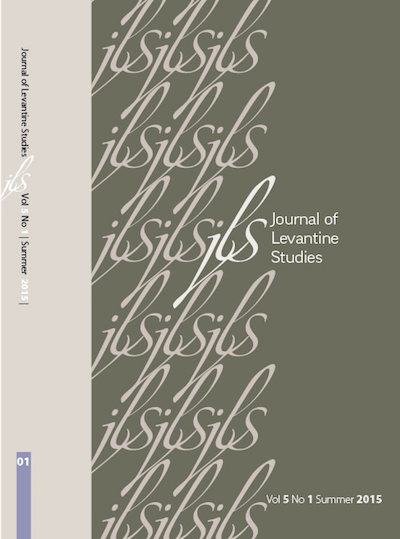-
Add to cartQuick view
Breaking Boundaries, Bricking Walls: Oriental, Sephardi, and European Jews in a Late Ottoman Palestinian Classroom
Free!This article explores the relations between European Zionists, Sephardim, and Oriental Jews in late Ottoman Palestine by narrating the story of A. Yehudai, a Bulgarian Jewish teacher in the Sephardi community of Gaza in 1913. Reading through Yehudai’s ambitions, deliberations, and frustrations, the article makes two main arguments: First, it challenges the inclusivity often attributed in scholarly literature to the category of “Sephardi,” suggesting that as a practical category used by historical figures, especially in the context of national discourses, it was regarded as much more bounded and rigid. Second, the article points to the period before European Zionist domination over Middle Eastern Jews. Through the case of late Ottoman Gaza, the article shows that Jewish communities in Palestine were essential for institutional Zionist bodies, were aware of their situation, and even used this power structure for their own gain. Taken together, both arguments testify to the fact that communal demarcations are essential for human society in the sense that the crossing of boundaries always entails the delineation of new ones.
Add to cartQuick view -
Add to cartQuick view
The Rear Side of the Front: Gaza and Its People in World War I
Free!During the First World War, the city of Gaza, a regional hub of forty thousand souls and a major market and exporter of grains, turned into a battlefield. While the military and political consequences of this arena are well researched, this article examines its civil and social aspects as well, in order to better understand the story of the First World War in Palestine. Using both British and Ottoman documentation alongside civil accounts and memoirs, the article discusses the reasons, methods, and effects of the city’s complete evacuation and the massive destruction of its physical environment. The civil perspective of the war reflected in the fate of Gaza poses a challenge to common chronological and spatial presumptions about the war itself, and it allows a rethinking of the Mandate period in the light of postwar circumstances.
Add to cartQuick view
- Home
- About JLS
- Issues
- Vol. 9 No. 1 | Summer 2019
- Vol 8 No 2 Winter 2018
- Vol. 8, No. 1: Summer 2018
- Vol. 7, No. 2: Winter 2017
- Vol. 7, 1: Summer 2017
- Vol. 6, Summer/Winter 2016
- Vol. 5, No. 2 Winter 2015
- Vol. 5, No. 1 Summer 2015
- Vol. 4, No. 2 Winter 2014
- Vol. 4, No. 1 Summer 2014
- Vol. 3, No. 2 Winter 2013
- Vol. 3, No. 1 Summer 2013
- Vol. 2, No. 2 Winter 2012
- Vol. 2, No. 1 Summer 2012
- Vol. 1, No. 2 Winter 2011
- Vol. 1, No. 1 Summer 2011
- Blog
- dock-uments
- Subscribe
- Submit
- Contact



